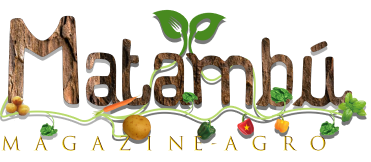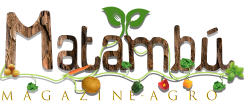[ad_1]
When the Beukes brothers expanded their table grape farming operation from the Hex River Valley to Brandwacht close to Worcester within the Western Cape, they’d no thought of the challenges this might carry. Jacques Beukes shared among the classes they learnt with Wouter Kriel.
Photo: Wouter Kriel
“We know how to farm table grapes in the Hex River Valley. Our family has been doing it since 1913!” says Jacques Beukes, as he sits within the boardroom of the packhouse on Modderdrift farm in Brandwacht, on the outskirts of Worcester.
Modderdrift is a comparatively new acquisition: Beukes and his brother Eugene purchased it in 2016 merely to improve the dimensions of their operation. Very quickly, nonetheless, they confronted a sequence of sudden issues, every of which had to be confronted and solved.
“We bought the farm and embarked on developing it in a similar way that works for us in the Hex River Valley. But although they’re less than an hour’s drive apart, the two locations are very different, and we had to adapt,” admits Beukes.
As they’d the chance to set up new vineyards right here, they wished a new cultivar that may give them a aggressive edge. After a research journey to the US, the place they checked out all the newest cultivars, they selected Sweet Sapphire.
“We were excited about the unique presentation, fertility and excellent taste it offered,” remembers Beukes.
The brothers duly carried out pilot plantings of Sweet Sapphire within the Hex River Valley and the outcomes proved promising. So, in 2017 they planted 20ha to the cultivar as a part of the 60ha below table grapes on Modderdrift. Unfortunately, issues emerged nearly from the beginning.
“We faced two challenges in Brandwacht: wind, and [the limitations of] the Sweet Sapphire.”
Wind and nets
“In the Hex River Valley, we have wind in August, and that’s about it. We know how to farm with that. But we soon discovered that our new farm in Brandwacht experiences strong, gusting winds throughout the year. This was a particular challenge during the long, wet winters of the past few years. Abnormally strong and gusting north-westerly winds come with strong cold fronts, which have hammered us for the past few years,” says Beukes.
The wind broken the younger shoots, and progress was severely restricted. The brothers additionally realised that the fruit would find yourself bruised and its high quality would undergo.
“One answer was to place the vines below netting. At that stage, we had no expertise
with nets; we’d solely regarded them as a chance for future developments within the Hex River Valley. But we quickly realised that with out nets, we wouldn’t survive in Brandwacht.
“Since our preliminary farm planning hadn’t included nets, we had to make compromises and work quick to cowl the vines in 2017. The blocks had been too massive as they hadn’t been designed for nets, so the overhead cables ended up too lengthy. This in flip meant that stress on the cables was too excessive, which resulted in harm throughout robust winds.“
The pace with which they’d to perform the primary installations led to insufficient development work in some cases. For instance, anchor poles weren’t planted securely sufficient, main to complete sections collapsing from time to time.
“Until 2020, we were playing catch-up on maintenance and repairs. We’ve learnt our lessons, though, and are more confident now with nets. We’ve found the right contractor, the blocks have been split into smaller units, and we’ve increased the number of anchor poles so we have sturdier structures.”
Apart from offering safety from wind, the netting has additionally helped the brothers scale back workload (and therefore labour prices), and resulted in fewer inputs.
“We’re using less fertiliser, and water usage has dropped from 6 500m³/ ha to between 5 500m³/ ha and 6 000m³/ha. At the same time, we’re achieving packouts of 6 000 to 7 000 cartons/ha.”
Indeed, they’ve already determined that their future plantings within the Hex River Valley will even embody nets.
Beukes admits, nonetheless, that rain may be a problem with nets, as they’ve to monitor the humidity ranges within the vineyards very rigorously and be prepared to intervene rapidly to forestall the onset of illnesses.
Changing cultivars
They additionally quickly found that Sweet Sapphire wouldn’t work for them. “In our new setting in Brandwacht, the cultivar was simply not producing the desired results,” explains Beukes.
“It’s extraordinarily delicate to rain, with subsequent botrytis, which develops within the dimple that’s a part of the cultivar’s distinctive form.
“We additionally struggled with uneven ripening within the bunches. We’d discover a 2 to 3 Brix distinction between the highest and backside of a bunch, making it very troublesome to harvest and export to markets within the East with their prolonged journey instances.
“In the end we established, and then removed, 20ha of Sweet Sapphire within four years. This has been our most expensive mistake to date, but we accepted it as part and parcel of the risks associated with trying new things.”
They have settled on a good distribution of Sweet Globe, Crimson, Sable Seedless, Allison, Sweet Joy, Joybells and Sweet Celebration.
Packhouse
The brothers just lately accomplished development of a trendy packhouse on Modderdrift. Beukes explains that this facility has its roots of their Hex River Valley packhouse, which they misplaced to arson throughout the 2012 riots within the space.
“We used that catastrophe as a chance to revisit what a trendy table grape packhouse might appear to be, and we included these options within the rebuild. We improved the circulate of grapes and employees, and carried out the very best expertise out there at the moment.
“This led to other producers pushing the envelope of what is possible with packhouses, and several new projects have improved on what we did. So when we started planning the Modderdrift packhouse, we could investigate the latest technology other producers had been testing out since 2012.”
Beukes says the best alternative for enhancing fruit high quality lies firstly in the way in which the grapes are dealt with instantly after being minimize and, secondly, within the chilly chain.
“For the 2021/22 season, we’ll experiment with covering the grapes with a tarpaulin immediately after being cut and transported to the packhouse. In terms of the cold chain, we believe that the temperature has to be brought down as quickly as possible, and [maintained at this level],” he says.
The humidity degree additionally wants to be optimum to forestall the stems from drying out. The Modderdrift packhouse has due to this fact been designed to cool the grapes to the right temperature quickly whereas protecting the humidity as excessive as potential with out creating undesirable condensation. The humidity inside the packhouse is stored at a fixed 75% and the chilly chain is maintained.
The facility has 102 work stations with a productiveness benchmark of 0,8 pallets, which quantities to 120, 5kg-equivalent models per station per day.
“We’ve installed large screens so that workers can track their real-time performance, making management and supervision much easier,” says Beukes.
He provides that the way in which the packaging materials is fed onto the strains from the storage space straight above permits staff to pack grapes into completely different packaging on the identical line concurrently, which reduces stoppages and saves time.
They have additionally invested in two check-weighers to weigh every packed unit earlier than it’s palletised. These machines create a weight report for every unit packed, and have industry-accepted calibration certificates to validate their accuracy.
“They’re expensive, but the penalties and reputational damage caused by weight disputes once your product is overseas make them an essential item for us,” explains Beukes.
He provides that the mix of all these efforts will lead to improved fruit high quality and a
longer shelf life as soon as the produce has reached its supposed market.
Venturing into advertising
Beukes says that when he received the Agri SA Toyota Young Farmer of the Year award in 2016, Modderdrift obtained a lot media consideration, they usually began getting enquiries from massive retailers. Through this, they noticed a chance to enterprise into advertising their very own produce.
From 2018, the brothers began specializing in completely different areas inside the enterprise, with Beukes placing his efforts into establishing a advertising arm for Modderdrift, and his brother taking accountability for his or her manufacturing actions.
“My first marketing trip to the UK was a nerve-wracking experience, and after a tough meeting with a buyer through whom we’d hoped to gain access to one of their programmes, I was convinced we’d made a mistake thinking we could break into the export market. I returned home despondently, and was therefore very surprised to receive a call two days later telling us we’d been chosen as their South African export partner,” says Beukes.
Since then, they haven’t regarded again, and have established themselves as a area of interest exporter.
“Because we also farm, we know what it’s like to deal with exporters, and we’ve used our farming experience to develop a few basic principles to differentiate our offering.”
Marketing worth proposition
As Modderdrift additionally exports the grapes of different farmers, Beukes says they keep a clear and particular person account for every grower.
“We don’t pool costs or forex transactions. We can show each grower exactly what costs were accrued, and the quality of the grower’s fruit when it was received. We also confirm the exact exchange rates with them before we perform currency exchange transactions,” he explains.
Beukes says he’ll solely enter into a contract with a new grower if he can add worth for the farmer that she or he just isn’t at the moment getting elsewhere.
“We’ve also decided to keep our focus on the UK market, where we benefit from stable relationships with buyers and well-organised logistics. It’s also a much shorter route to market, reducing the risks associated with long travel times.”
Beukes says that he and his brother have agreed to stick to table grapes. “It’s what we know, and we’ll put all our energy into consolidating our position with this crop. We don’t see ourselves paying school fees for an unfamiliar crop in this current market,” he concludes.
Email Jacques Beukes at [email protected].
[ad_2]
Source link










